Writing as Mlusine Draco, the author has published over 30 books on esoteric subjects, particularly about the Egyptian Mystery Tradition and traditional British Old Craft, in addition to being a contributor to a wide range of pagan magazines such as The Cauldron, Prediction, Pentacle, Brigids Fire (Ireland) and Witches & Pagans (USA), and currently writing for Moon Books and Axis Mundi imprints of John Hunt Publishing. Under her real name of Suzanne Ruthven she has been editor of The New Writer since 1994; contributor for a wide range of publications as diverse as The Lady, Country Illustrated, The Countryman and The Funeral Directors Journal; ten years as commissioning editor for ignotus press; and now commissioning editor for Compass Books. www.facebook.com/JHPCompassBooks
Chapter One
In The Beginning There Was The Word
I want to be a pagan author and write for the pagan community
Can you tell me how to get published?
Two separate postings on the Internet suggested that pagan writing has finally moved from the hidden into mainstream where readers are becoming more circumspect in their choice of material; and that it was time to produce a serious guide for would-be pagan writers. Firstly, in answer to the blog posting, writing for the pagan community is no different from writing for any other readership so we need to learn the basic rules before deciding whether we have any talent worth pursuing. After that, it will depend on the level of our own expertise as to whether anyone will look favourably on our submissions.
Pagan publishing has now spread across the world and there is no shortage of opportunities for writers, whether it be in print or on-line. The pagan voice is heard on every wind and there are markets everywhere in the English-speaking world. The on-line community spreads the word to the furthest reaches of the globe, and book reviews give pagan authors far more coverage than they could have generated in years of traditional marketing.
One mainstream review was in response to Traditional Witchcraft for the Seashore and the second posting on Andy Lloyds Book Reviews suggested there might be an opening for a serious guide. The learning is multi-disciplinary, and feels almost as if one is studying a textbook written by a poet. Yet the science collated in these pages is interesting and pragmatic, wrote the kindly Mr Lloyd. Intermingled with the factual information is much about rituals, superstitions, beach treasures to collect for magical means and, of course, spell-casting.
Generally speaking, todays paganism falls into four different elements, which in turn separates the different approaches and levels of magical practice, and subsequently, the writing. Each category requires that it should be written for, and read by, followers at that level of learning to avoid any misunderstandings. A considerable amount of magical writing can be incomprehensible to those who have not been schooled in that particular path or tradition so we begin at the beginning and work ourselves up through the spheres of Knowledge, Wisdom and Understanding. And we start by accepting that there is a divide between the various approaches to paganism and magical practice.
 Animistic: The belief that everything animate and inanimate has its own life force, such as that which forms the basis of shamanism, Shinto, Aboriginal, Native American, etc.,
Animistic: The belief that everything animate and inanimate has its own life force, such as that which forms the basis of shamanism, Shinto, Aboriginal, Native American, etc.,
 Eclectic: Selecting or borrowing from a variety of styles, systems, theories, beliefs, etc., as commonly found in modern paganism and Wicca.
Eclectic: Selecting or borrowing from a variety of styles, systems, theories, beliefs, etc., as commonly found in modern paganism and Wicca.
 Syncretic: The attempt to reconcile different systems of belief; the fusion or blending of religions, as by identifi- cation of gods, taking over of observances, or selection of whatever seems best in each; often producing a seemingly illogical compromise in belief. This approach is found in many aspects of Western Ritual Magic, and the initiatory branches of the European and British esoteric groups.
Syncretic: The attempt to reconcile different systems of belief; the fusion or blending of religions, as by identifi- cation of gods, taking over of observances, or selection of whatever seems best in each; often producing a seemingly illogical compromise in belief. This approach is found in many aspects of Western Ritual Magic, and the initiatory branches of the European and British esoteric groups.
 Synergetic: Combined or co-ordinated action; increased effect of two elements obtained by using them together. The combining of ancient wisdom with modern magical applications, as in the case of the Egyptian Mystery Tradition, Old Craft, the Norse traditions and Druidism.
Synergetic: Combined or co-ordinated action; increased effect of two elements obtained by using them together. The combining of ancient wisdom with modern magical applications, as in the case of the Egyptian Mystery Tradition, Old Craft, the Norse traditions and Druidism.
Regardless of our own personal levels of esoteric learning, we need to go back to the basics of creative writing and see what tricks of the trade we can utilise. We will see why editors and publishers are inundated with submissions of a certain kind and what we can do to give our writing editor appeal. We will learn how to develop ideas via lateral thinking, and develop the art of seeing through an editors eyes, i.e. visualisation.
Back To Basics
How many times do we read (or heed) the advice about hooking an editors attention? How many writers fail to appreciate that if the editor (or publisher) isnt hooked right from the start our submission will be rejected? And it doesnt matter whether we are talking about non-fiction or fiction, short stories or novels, poetry or prose it must have something to make the reader want to turn the page. If it fails to entice in the opening sentences, then we will be lucky if the professional reader even bothers to go to the next paragraph.
Exercise
What exactly is a hook?
It is a simple device for introducing our subject with impact, rather than long-winded preamble. That opening line or first paragraph is the most important part of the whole piece. It may be a challenging statement. A question. Brilliant use of language or analogy. Evocative description of a person, place or thing. And it doesnt matter how brilliant the rest of our work may be an editor isnt even going to read it unless weve hooked their attention right from the start.
Our first exercise is to study a selection of pagan magazines. We may already subscribe to one or more; in which case we will be familiar with the differences in house-style. Begin by reading the editorial and any submission guidelines these are included in the magazine, or found on the website and make notes about the type of material in each publication. Into which categories do the majority of these subjects fall? Divination herb craft Tarot astrology healing crystals witchcraft magic?

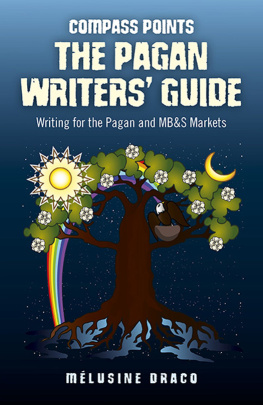
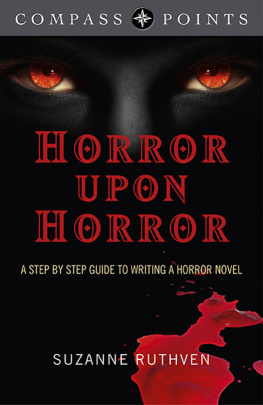
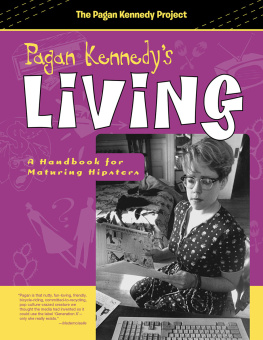

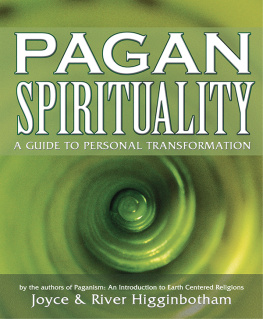
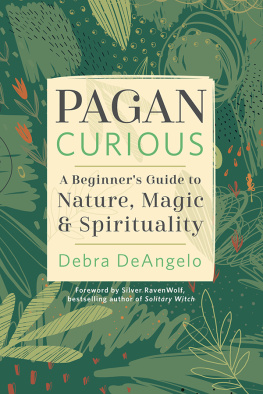
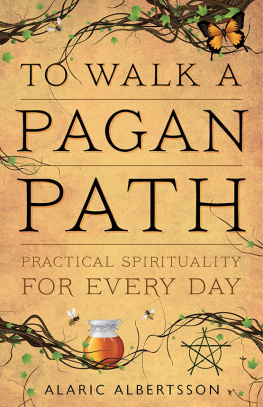
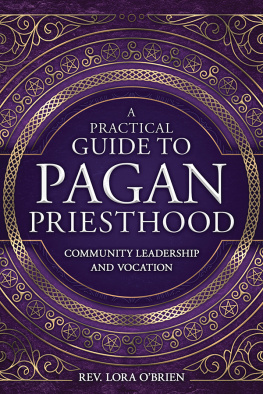
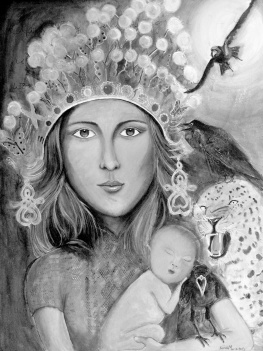
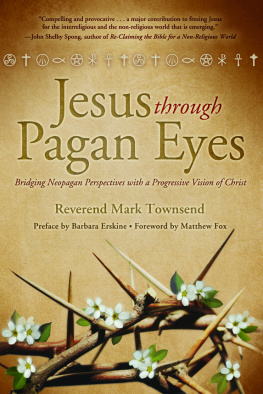


 Animistic: The belief that everything animate and inanimate has its own life force, such as that which forms the basis of shamanism, Shinto, Aboriginal, Native American, etc.,
Animistic: The belief that everything animate and inanimate has its own life force, such as that which forms the basis of shamanism, Shinto, Aboriginal, Native American, etc.,